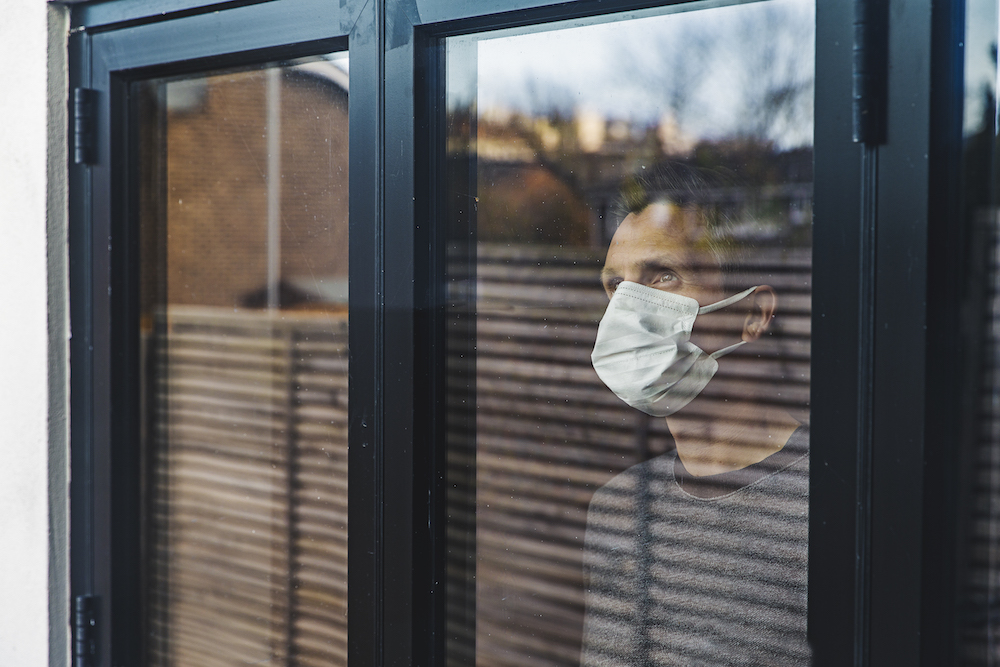- Microshare’s tracking service, originally aimed to help sustainability, is attracting attention for its potential to help companies contain the effects of COVID-19.
- The Philadelphia startup is one of several firms pitching tracking tools to companies and governments.
- The advent of point-of-contact tracking raises privacy concerns that may not be resolved quickly or easily.
Talk of sustainability and helping the environment didn’t get U.S. executives interested in Microshare’s tracking services. But the deadly coronavirus pandemic has.
The Philadelphia startup helps real estate companies and businesses track the movements of a building’s occupants, providing key data to improve energy efficiency, cut down waste and more effectively use space. While European firms have been eager to make their operations more sustainable, American companies haven’t seen the value, Microshare CEO and co-founder Ron Rock said.
In the U.S., companies talk about sustainability “but are not willing to spend money on it,” he told Karma. “Most of my capital comes from Europe.”
That may change now that COVID-19 is forcing executives to figure out how to make workplaces safe enough for employees to return. At least eight surveillance and cyber-intelligence companies are attempting to adapt their law-enforcement tools to enable the tracking of who may be exposed to the virus to cut down on infections, Reuters reported. Apple and Google are working together on a system that can alert smartphone users if they have come into contact with people infected with the coronavirus.
The drawback to the Apple-Google project, and many of the rival services being developed, is that they rely on everyone carrying smartphones, Rock said. “People don’t realize that most people don’t have smartphones. I’m not just talking about developing parts of the world.”
Microshare’s Bluetooth-based “Universal Contact Tracing” service relies instead on sensors being placed inside employees’ badges, or attached to their keyrings or wristbands. When workers test positive, a company could see precisely where others had interacted with them. People who came into contact would be alerted and tested, and the areas where they interacted would be cleaned.
Using this service, companies would be able to determine exactly how much of their operations were affected and only shut down that portion to be cleaned, rather than the whole business.
Microshare offers a similar service in U.K. hospitals, which use the company’s sensors to track wheelchairs and beds within their facilities. For instance, a patient with an infection may die and be wheeled in a bed to the morgue. The workers in charge of cleaning are able to make sure the correct bed gets disinfected.
Rock’s company, which was renamed Microshare in 2017 after being founded as Point.io in 2013, has raised $13.6 million in funds, according to Crunchbase. He said it is almost done closing on another $5 million in funds and is looking for an infusion of $25 million next year.
The epidemic has led to a surge in interest from potential customers, Rock said. They may not have been interested in sustainability, but they are concerned about liability and protecting their staff.
Rock said he thinks many workers would be OK with wearing a tracking sensor if a company can say, “Wear this badge and I might be able to save you from getting sick.”
Privacy advocates aren’t so sure that large-scale tracking won’t be abused.
“This public health crisis needs a public health solution — not the interjection of for-profit surveillance companies looking to exploit this crisis,” non-profit group Privacy International said in a tweet. The U.K.-based organization says on its website that it is “fighting the global COVID-19 power grab,” claiming “unprecedented levels of surveillance, data exploitation, and misinformation are being tested across the world.”
Rock said he expects the weighing of public safety against personal information will continue for years to come. “The issue of privacy is not going to be resolved in our lifetimes,” he told Karma.






















